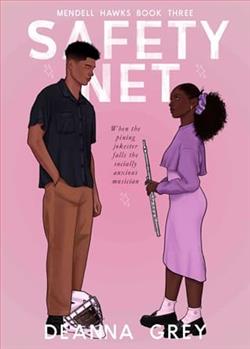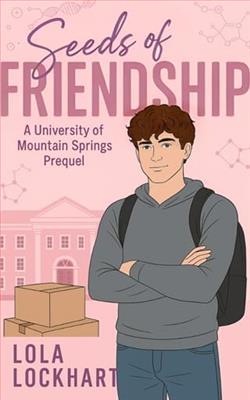Page 14 of A Shimla Affair
Although Afreen warned me to pretend as if everything was normal the next day, I found it increasingly hard to do so. I was absentminded, constantly thinking about how Afreen would not be considered a Parsi any more and wondering what kind of family Ratan Babu had, but more than anything, I imagined them meeting here in the hotel and outside in the town and falling in love.
I ducked into the kitchen frequently to whisper my queries. ‘When did this start?’
At first, she tried to ignore me, but finally came out for a walk in the gardens, so nobody would overhear us.
‘I told you: I started to participate in the movement, and that’s where we met. I guess I never stopped feeling the injustice of it all … we used to read all these pamphlets and magazines from our father’s collections growing up,Jugantar, Young India …we role-played askrantikaris,freedom fighters, when we were children, holding a gun in our hands and liberating our world. When Father died, I remember feeling so angry about everything, at the way we were treated, at the way they took away almost all that we had, leaving us to run our own hotel as ifit was a privilege being extended to us. I would wake up feeling breathless and agitated on so many nights and felt that until I did something to help the cause of our freedom, to kick the goras out of India, my heart would not calm down. When we had to move to the hotel, I found a way to do something about it.’
‘That is why you calmed down? We thought it was all the cooking!’
Afreen smiled but then looked troubled again. ‘That too, but it was much more. One day in the kitchen, I overhead the maids saying that they didPrabhat Pherievery morning in the Lower Bazaar, waking up everyone by singing songs of freedom. I decided to go and see and felt such peace as I have never felt before. I began to go there every morning. One day, a man approached me. He said my sari looked too expensive to seem like I belonged there. He asked me what I wanted. When I told him I want freedom, he smiled, and several days later, took me to the Shimla Circle.
‘I can read and write, so they make me answer letters, listen in on conversations in the hotel, go to areas where a woman would find it easier to enter and survey the surroundings … how many policemen are on duty, who comes, who goes, things like that.’
‘Aren’t you afraid?’ I asked her, enthralled. I wanted to be like her, like our father, brave and unwavering, full of passion and courage.
‘Every day, less so,’ she said.
I could never betray her trust, so I decided to keep an eye on her and stop her from getting herself into trouble, at least as far as I could manage. Once she and Ratan Babu left, they would be free to live the life of rebellion they sought, to not even hide it from Noor any more, and simply immerse themselves in the freedom struggle.
But she would never again be allowed inside a Parsi temple, would not be received by our relatives or welcomed in Parsicommunities and circles, never see a single Parsi penny if she were ever in need, her children would never be accepted—it was the ultimate umbilical cut from who she is now. She would have to embrace this new identity, giving up all that she was in the past.
I thought distantly about a studio filled with lights, of silky enchanting dresses, of red lipstick and words that flowed off the pages of a script … in a way, did Afreen too not seek an escape? Were we both charting our independent paths?
Noor must have noticed something going on with us, for she looked over again and again, trying to find out what we were talking about. I daren’t say anything when she was around but I’m afraid I gave away too much when Ratan Babu appeared in the foyer and I sped away from him as fast as I could. In the night, we could finally laugh and giggle about it. Despite everything, it was my darling sister who had fallen in love and had eloped with a man, just like in the movies. I thought for a brief moment about telling her about Charles, but what was I going to say? That I liked him, an Englishman? The idea sounded ridiculous even in my head. I was sure that Afreen was going to laugh out loud if I dared reveal my fantasies.
I almost forgot that all this was yet to be revealed to Noor. When I saw the two of them standing together in the quiet afternoon lull, my heart sank.
‘This is just not possible. He is not appropriate, he is just playing around, he is not serious with his intentions, and I will not have him ruin my sister’s life,’ Noor spoke in a low voice that I identified as her ‘tense voice’, reserved for when she was extremely angry, when even the slightest infraction could set her off.
‘No, Afreen. Only a Parsi from a good family will be accepted, not any random man that one bumps into.’
‘But—’
‘And of all people, an English man! No, I will not allow it.’
Both Afreen and I stopped dead in our tracks, staring at her in confusion. Until it dawned on me: Noor had perhaps interpreted our hushed conversations to believe that I was confessing to Afreen my interest in Charles. Suddenly, I felt sorry for her. For all that she had done for us, and for all that she was going to face. Perhaps she deserved better sisters than us: Afreen, who was hand in glove with rebels, and who had just had a secret wedding. And I, who dreamt of running off to America, of being with a British officer.
I held Noor by her side, and she immediately realized she had gotten it wrong.
Afreen’s voice broke as she spoke: ‘It’s me, I–I am the one. I did it. With a Hindu.’
Her lips curved in comprehension. She nodded, as if on autopilot, and held my hand. I felt a surge of pity for her. Noor had been so beautiful as a child, our ayah used to tell us that no one except the close family was allowed to look at her for fear of the evil eye. She had beautiful doe eyes on her heart-shaped face, and had thick, curly hair that made her look like a breath of fresh air. But now as I looked at her, I saw age and worries: her eyes were dark and tired, fine lines starting to appear.
She leant her weight into me. She had the ability to work the hardest; on her toes and heels all day. She usually avoided sitting down on the same sofas as the guests, but in that moment, it was as if all the strength had drained from her legs. We stood next to her for what felt like an eternity, too scared to say anything. When the call of duty beckoned, Noor simply got up and walked away. I held Afreen’s hand, hoping that my touch would convey that we will get through this.
Ratan Babu stood next to Afreen, as Noor surveyed them together once it was late enough, and the guests had gone to bed. She had her arms folded across her chest, and paced all around the room.
I looked at him: he had a charming, likeable way about him, despite his rebellious khadi attire.
Noor tried to explain her point: ‘I cannot say much now. As Afreen’s husband, you have all the right to be with her. I can also understand how people might have these English ideas of marrying for love and whatnot, watching these movies that influence your thinking … and sometimes it can work. Why not? But for Afreen, it is a matter of giving up her very identity, it is a betrayal to our community …’
Ratan Babu folded his hands in front of Noor. ‘I promise you, that I will never be in the way of Afreen following her faith, in being a true Parsi even though she would not be allowed to remain one now that she has married a Hindu. But would you not say that faith is in the heart and the mind?’
‘That’s all very well, but—’
‘She will have a good home. She will have a wedding trousseau and a family who will look after her, and more than anything, a companion who will care for her till her dying day.’
Noor looked away, her expression still pained. I saw Ratan Babu nod at Afreen.















